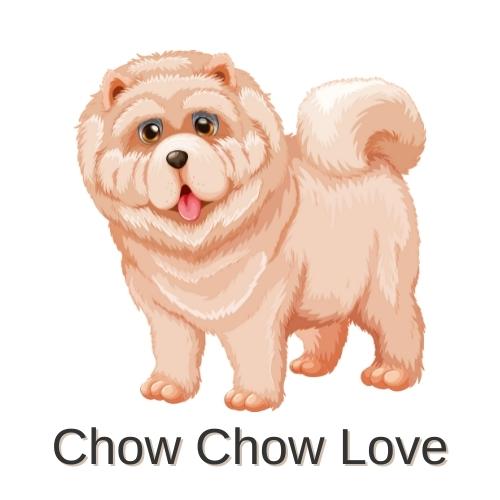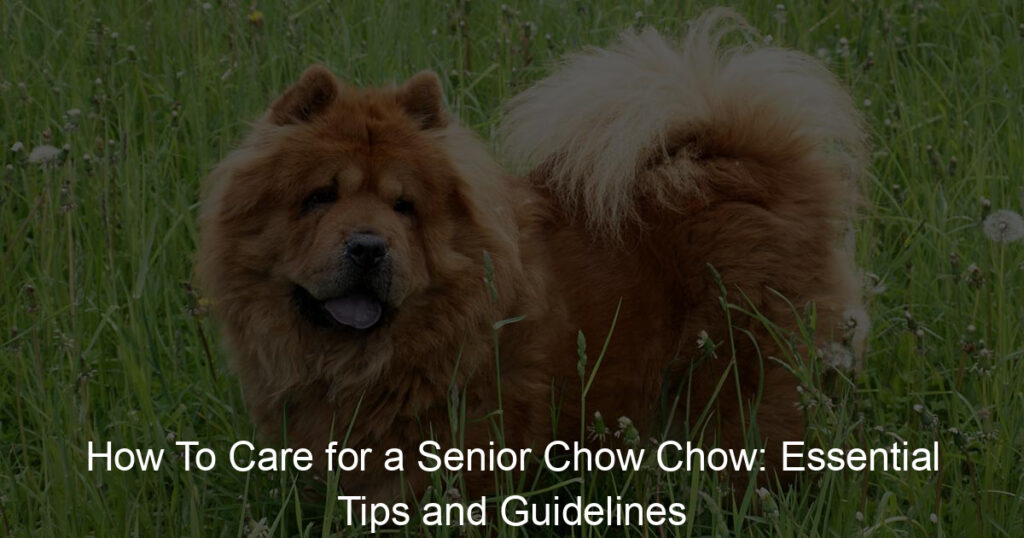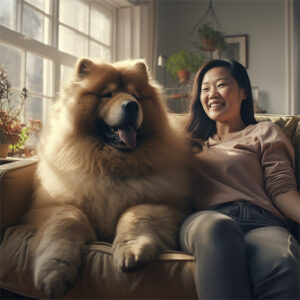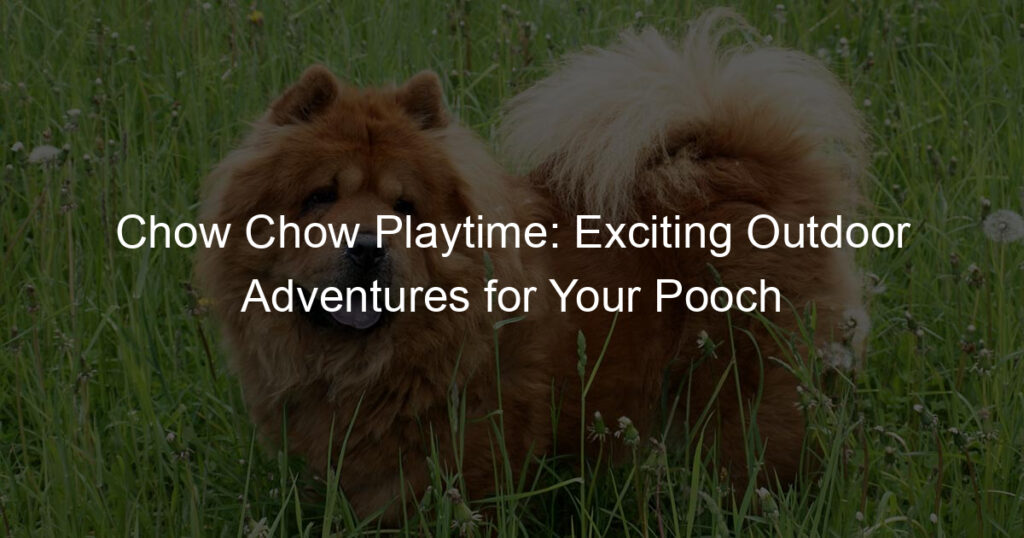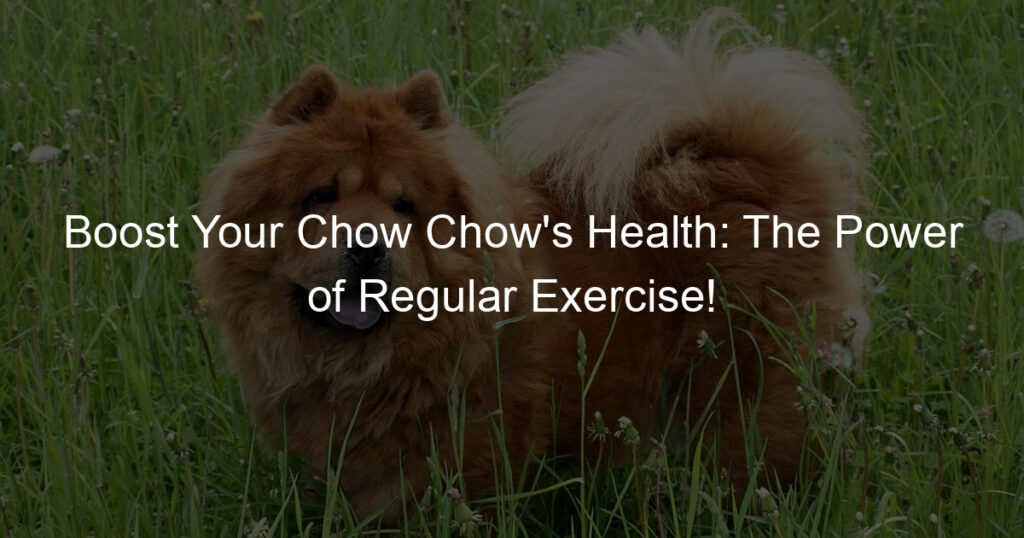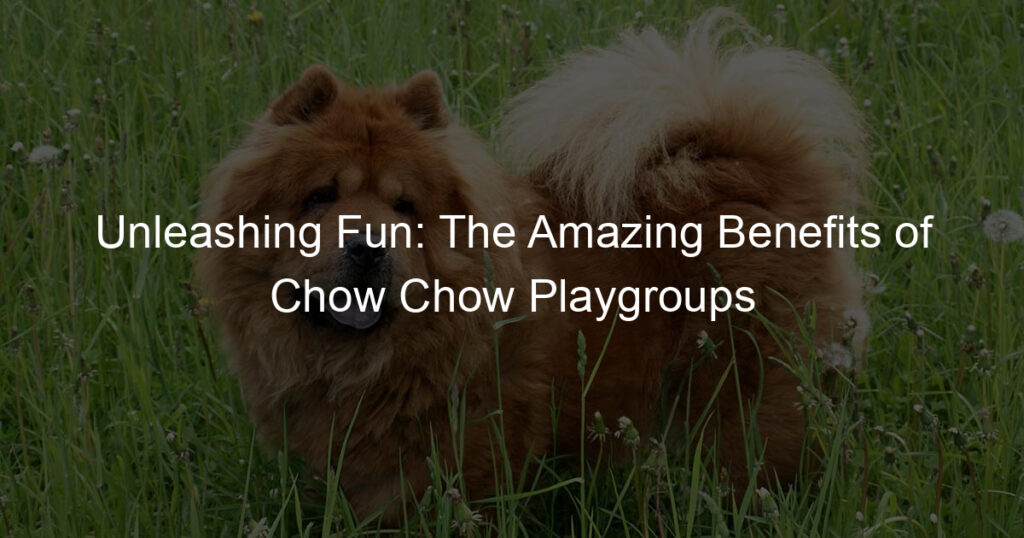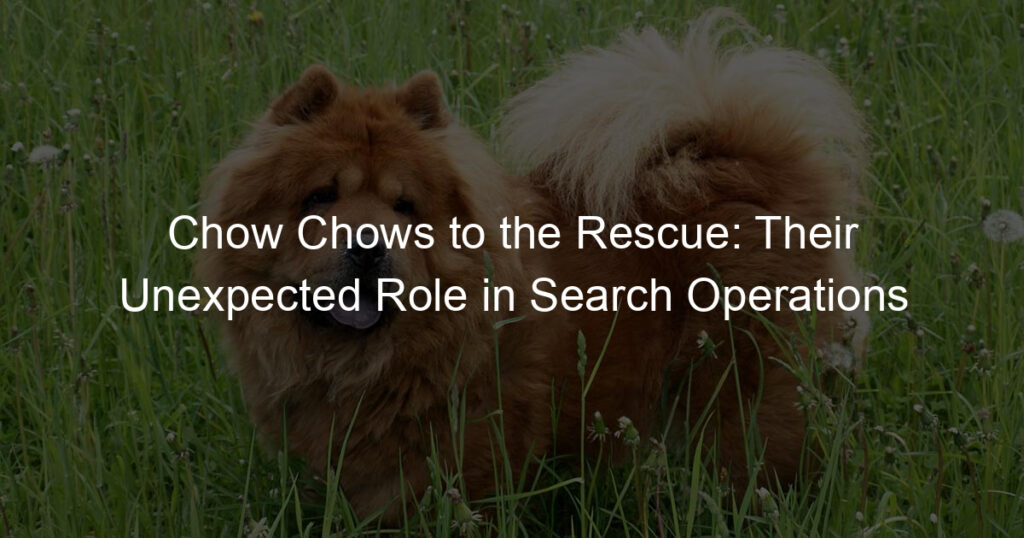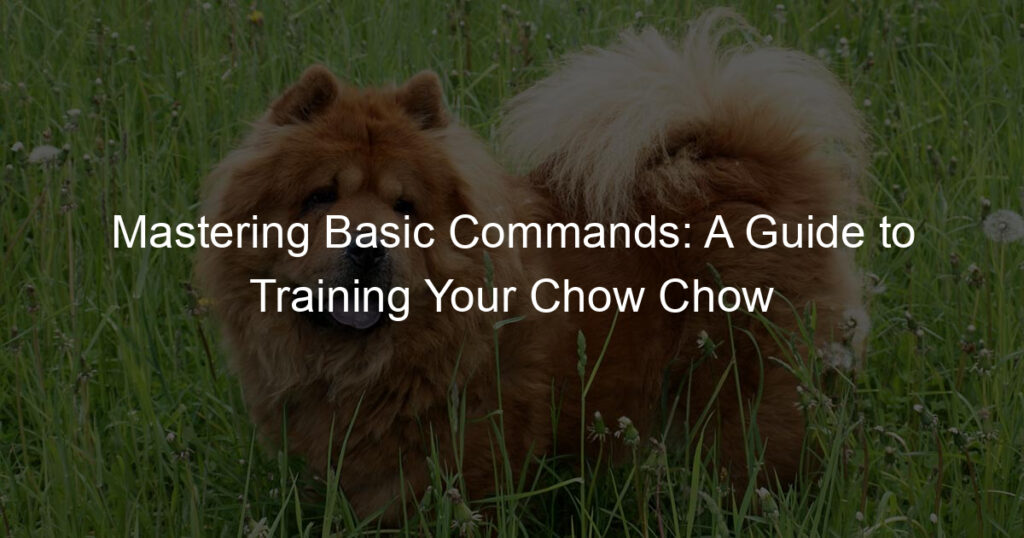Caring for a senior Chow Chow requires some additional attention compared to when they were younger. As your Chow Chow enters its golden years, it’s crucial to understand their changing needs to provide them with the best support.
How to care for a senior Chow Chow? Making a few adjustments to their daily routine, diet, and environment can tremendously improve their overall well-being and extend their quality of life.
Understanding your older Chow Chow’s unique demands is essential. Older dogs may face a decline in mobility, a weaker immune system, and more sensitive skin. As your Chow Chow’s guardian, you must be vigilant in monitoring their health, grooming, diet, and exercise habits.
Familiarizing yourself with the signs of aging and learning how to cater to their specific needs will not only facilitate a loving bond but also ensure that they are comfortable and healthy throughout their senior years.
Key Takeaways
- Cater to your senior Chow Chow’s specific needs, including diet, exercise, and grooming
- Pay attention to any changes in their health or behavior, and schedule regular vet check-ups
- Create a comfortable space for them to rest, promoting a high quality of life as they age
How To Care for a Senior Chow Chow?
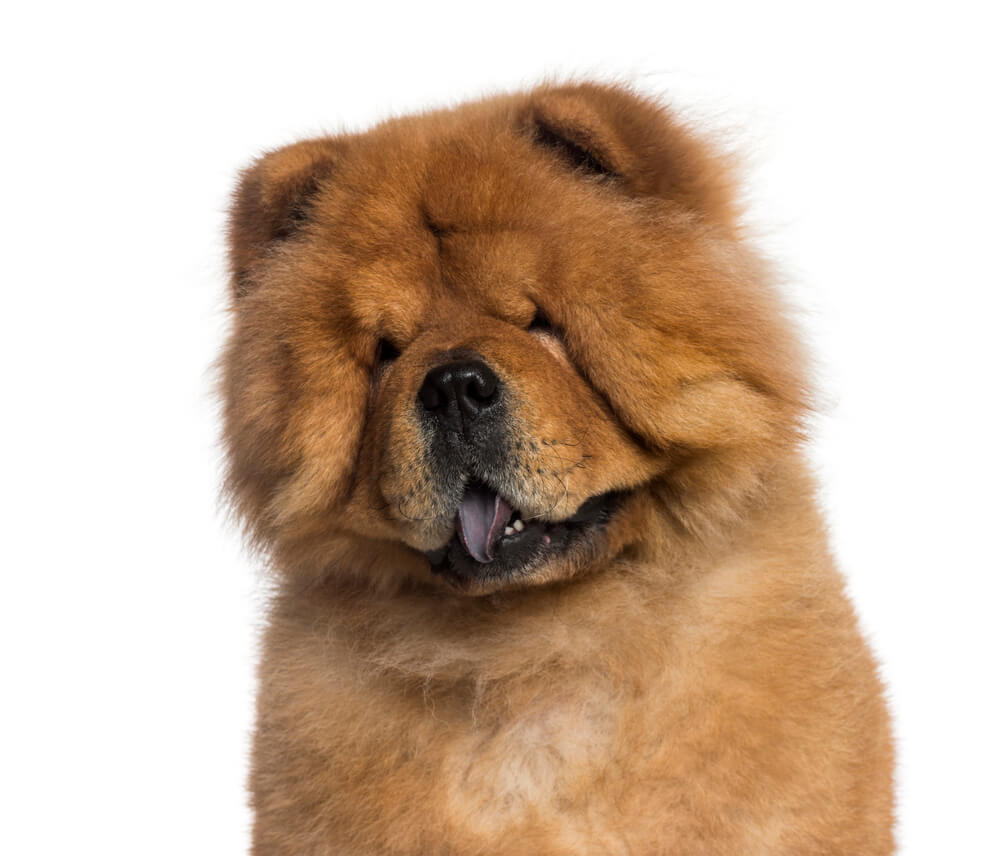
As your Chow Chow ages, there are specific care and attention they require to maintain their health and well-being. In this section, we’ll discuss the changes in physical health and behavior of a senior Chow Chow to help you understand their needs better.
Physical Health Changes
As Chow Chows get older, their immune system gets weaker, making them more prone to various ailments. Scheduling regular vet check-ups is crucial to monitor their health and address any issues.
Additionally, as they age, Chow Chows may develop age-related health conditions such as hip dysplasia and obesity. Feeding them a senior diet rich in omega-3 fatty acids can help alleviate the symptoms of these conditions.
In terms of exercise, senior Chow Chows may not have the same energy and stamina as they did when they were younger. Nevertheless, it is still essential for them to engage in light physical activities such as short walks, gentle tug-of-war, and outdoor playtime.
Remember to adjust the exercise routine according to your dog’s health and energy level.
Behavioral Changes
Senior Chow Chows may experience behavioral changes due to decreasing cognitive function, hearing, and vision. As your Chow Chow becomes older, it is essential to provide mental stimulation with puzzle toys or light training sessions to keep their mind sharp.
Furthermore, your home environment should be adapted to accommodate your senior dog’s needs, such as adding non-slip mats and ramps to help with mobility.
Patience and understanding are key when dealing with behavioral changes in senior Chow Chows. If you notice any sudden or severe changes, consult your veterinarian to rule out any underlying health issues.
By recognizing and addressing the physical health changes and behavioral changes that your senior Chow Chow may experience, you can provide the proper care they need to age gracefully and comfortably.
Feeding a Senior Chow Chow
Dietary Adjustments
As your Chow Chow ages, their nutritional needs may change. It’s essential to tailor their diet to meet these changing demands. Adjusting the food for your senior Chow Chow should take into consideration their individual health status, weight, and activity levels.
Remember that older dogs may require fewer calories and more high-quality protein sources to help maintain muscle mass.
Keep an eye on your dog’s weight, and discuss any concerns with your veterinarian. They can recommend an appropriate feeding schedule and portion sizes to support a healthy weight and body condition.
The right balance of nutrients can help manage age-related issues, such as joint health or digestion.
Hydration Needs
Staying hydrated is crucial for your senior Chow Chow’s overall health, particularly given their increased risk of dehydration due to age-related issues. Make sure your dog always has access to plenty of fresh water, and encourage them to drink throughout the day.
Hydration plays a role in digestion and weight management, too. Offering your senior Chow Chow healthy snacks and wet food options can provide more water intake while supporting their nutritional needs.
Monitor your dog’s water consumption and adjust the amount of water available accordingly.
Paying attention to your senior Chow Chow’s dietary adjustments and hydration needs can provide them with the best care and support needed in their golden years.
Exercising Your Senior Chow Chow
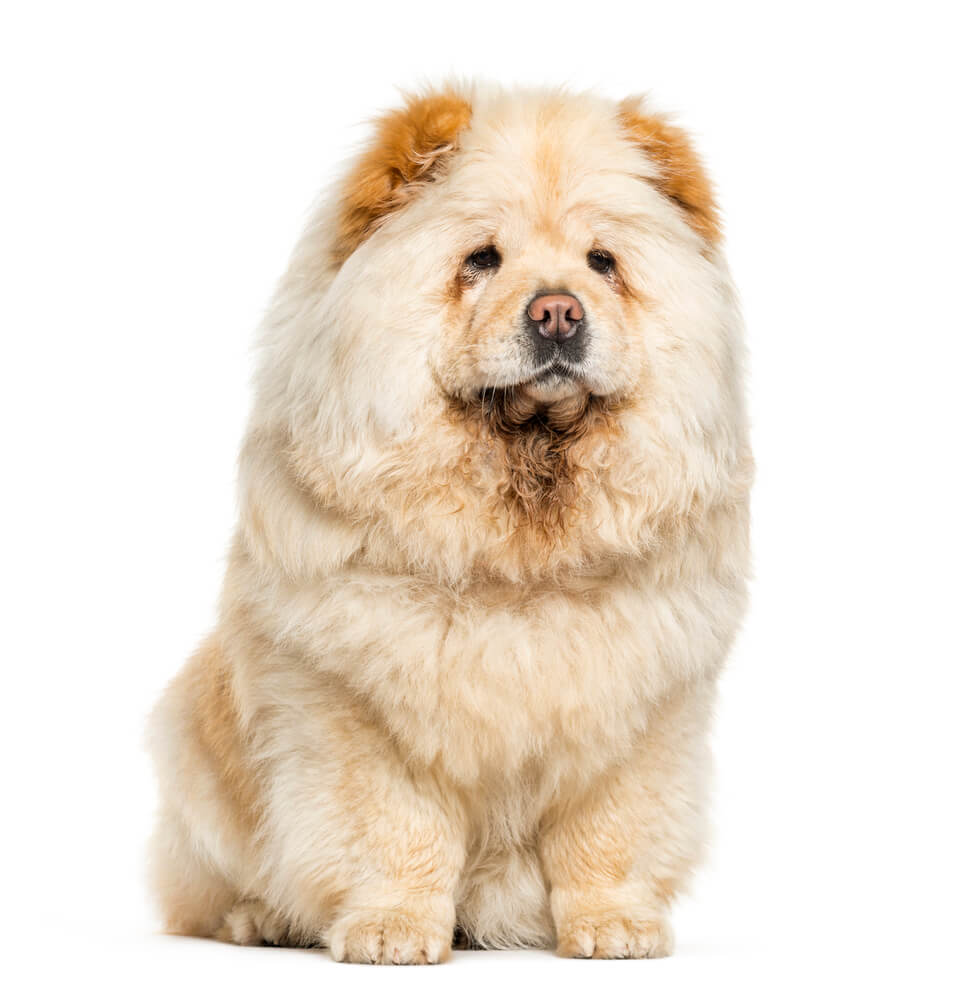
Adjusting the Exercise Routine
As your Chow Chow ages, it’s essential to adjust their exercise routine to accommodate their changing needs. Senior dogs require a more gentle exercise regimen to prevent injury and stress on their aging joints.
Always listen to your dog’s cues and consult your veterinarian to determine the appropriate level of activity for your senior Chow Chow.
Gentle Exercises
- Shorter walks – Instead of long walks, take your senior Chow Chow on shorter, more frequent walks throughout the day. This will help keep them engaged and maintain their muscle strength without overexerting them. Aim for two 15-minute walks per day as a starting point.
- Low-impact play – Engage in low-impact play activities that won’t strain your dog’s joints, such as tug-of-war with a rope or old towel. This can also be done indoors, making it a great option for days with unfavorable weather.
- Mental stimulation – Keeping your senior Chow Chow mentally engaged is just as important as physical exercise. Incorporate mental stimulation exercises like puzzle toys, treat-dispensing toys, or scent games to maintain cognitive health and prevent boredom.
- Swimming – If your Chow Chow is comfortable around water, swimming can be an excellent low-impact activity for older dogs. It allows them to exercise without putting stress on their joints. Be sure to supervise your dog closely and use a life jacket designed for dogs if needed.
- Adjusting to limitations – Monitor your senior Chow Chow closely and adapt their exercise routine as needed. If your dog experiences arthritis, vision loss, or hearing loss, consult with your veterinarian for guidance on how to help them safely navigate their environment and maintain their quality of life.
Remember, always be mindful of your dog’s changing needs and work closely with your veterinarian to maintain your senior Chow Chow’s health and well-being.
Grooming Your Senior Chow Chow
Bathing
Bathing your senior Chow Chow is crucial for maintaining a clean and healthy coat. Regularly bathe your Chow Chow to prevent matting and tangling in their dense coat.
Be gentle during the bathing process, as older dogs may have sensitive skin. Use a mild dog shampoo formulated for their specific coat type, ensuring it is thoroughly rinsed.
Brushing
Your senior Chow Chow’s coat requires consistent care. Brush their body coat with a pin brush while using a slicker brush for their legs. During their shedding period, which occurs about twice a year, use a metal comb.
It is essential to spritz their coat with water before brushing since brushing a dry coat can cause breakage and discomfort. Consistent brushing is crucial for managing the lion-like ruff of adult Chows and maintaining a clean, fluffy appearance.
Ears and Teeth Care
Taking care of your senior Chow Chow’s ears and teeth is essential for their overall health. Regularly examine their ears for any signs of infection or irritation, and clean them gently using a cotton ball or dog-specific ear cleaner.
Do not use cotton swabs, as they can cause harm to the dog’s inner ear.
Dental hygiene is crucial in senior dogs, as it helps prevent gum disease and tooth loss. If possible, brush your Chow Chow’s teeth daily using a soft toothbrush and dog-specific toothpaste.
Consult your vet about dental chews and chew toys that can help keep their teeth clean and healthy. Regular veterinary checkups will ensure optimal care for your dog’s ears and dental health.
Regular Vet Check-ups
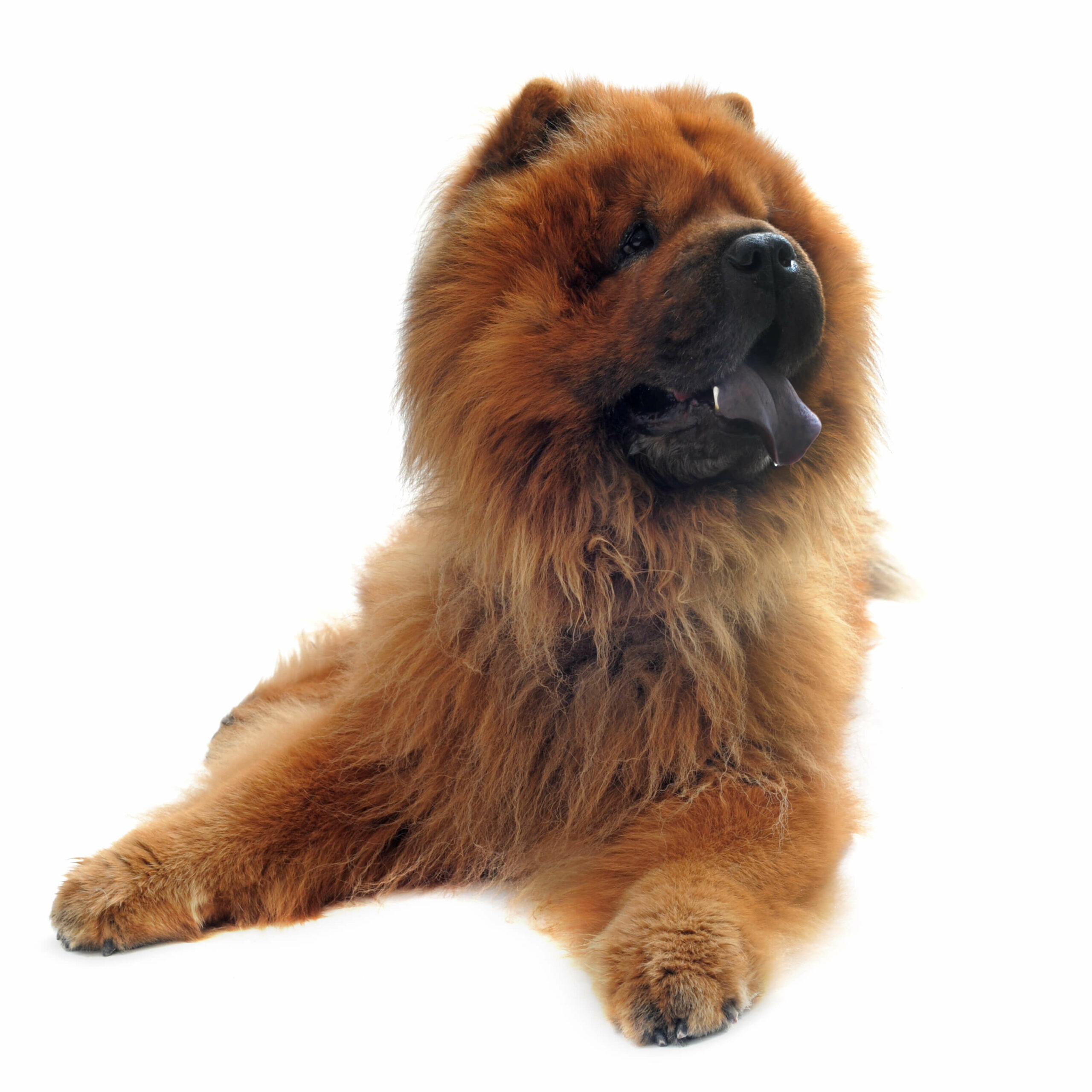
As your Chow Chow enters their senior years, it is more important than ever to schedule regular vet check-ups to monitor their health and address any potential issues.
Potential Health Issues
Senior Chow Chows are more susceptible to certain health problems such as arthritis, dental disease, vision loss, and hearing loss. It is crucial to be aware of these issues and inform your vet of any observed changes in your dog’s behavior or physical condition.
Early detection of these age-related conditions can help slow their progression and provide the best possible care for your Chow Chow.
Here are some common health issues in senior Chow Chows:
- Arthritis: Joint inflammation and stiffness may cause reduced mobility in your dog. Regular examination of their joints and limbs can help detect and manage this condition.
- Dental disease: Gum and tooth problems can occur, leading to pain and difficulty eating. Regular dental cleanings and at-home care can help maintain good dental health.
- Vision loss: Age-related vision changes may affect your dog’s daily activities and safety. Observe any signs indicating vision impairment (e.g., bumping into objects or disorientation) and consult with the vet for appropriate care.
- Hearing loss: Senior dogs may gradually lose their hearing, affecting their ability to respond to commands and surroundings. If you notice any changes in their hearing, discuss possible solutions with your vet.
Regular Immunizations
In addition to monitoring age-related health issues, keeping your senior Chow Chow’s immunizations up-to-date is essential in maintaining their overall well-being. Regular vaccinations can help prevent various diseases from affecting your dog, ensuring their immune system stays strong.
Make sure to discuss your dog’s vaccination schedule with your vet, considering their age and specific health needs.
Ensuring proper immunizations and regular vet check-ups will be providing a healthy and comfortable environment for your senior Chow Chow to thrive in.
Creating a Comfortable Space
Bedding
For your senior Chow Chow, comfort is essential when it comes to their sleeping area. Choosing the right bedding can make a huge difference in their rest and overall well-being.
Make sure to provide your dog with a high-quality orthopedic bed that is suitable for their size. Orthopedic beds are designed to provide extra support and cushioning for elderly dogs, helping to relieve any joint or muscle pain they might be experiencing.
In addition, consider adding a warm, soft blanket to their bed for added comfort and a sense of security. It’s essential that you keep the bedding clean and hygienic, so make it a point to regularly wash their blankets and any removable covers on their bed.
Indoor Temperature Control
Elderly dogs can be more sensitive to temperature changes than younger ones, so maintaining a consistent indoor temperature is crucial for your senior Chow Chow’s well-being.
In colder months, ensure your home is adequately heated and pay attention to any drafts that may be causing discomfort. You might want to consider providing your Chow Chow with a heated dog bed or a safe space heater for extra warmth.
During the hot summer months, make sure your home is cool and well-ventilated. Utilize air conditioning systems or fans to maintain a comfortable temperature and prevent your dog from overheating.
You can also provide them with a cooling mat or damp towel to lie down on for added relief.
By focusing on these elements, you’ll create a comfortable space for your senior Chow Chow where they can feel and thrive.
Maintaining Quality of Life
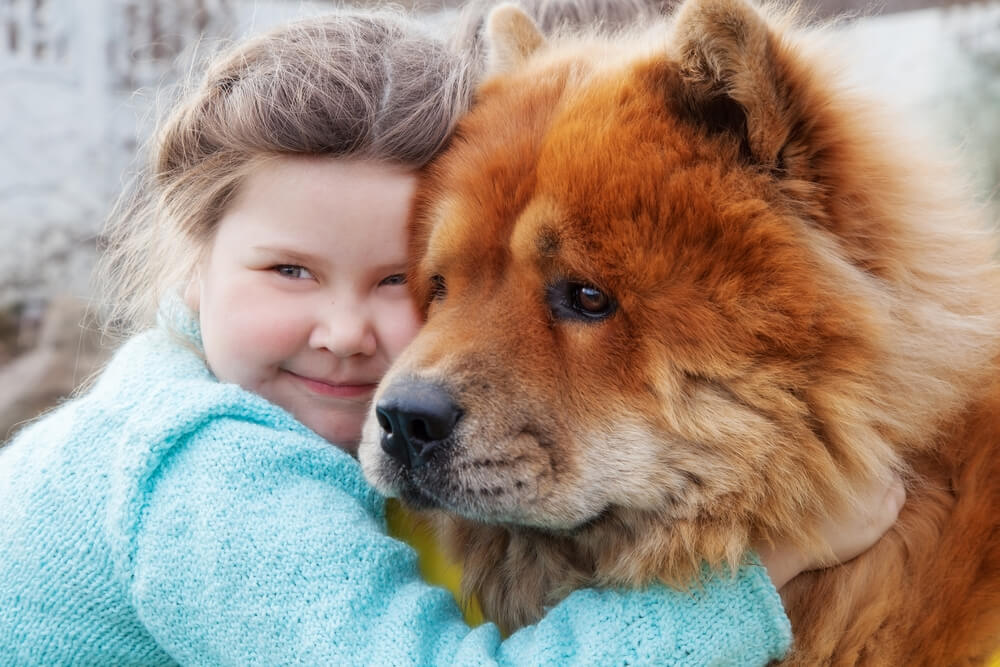
Caring for a senior Chow Chow requires special attention to ensure they enjoy their golden years. In this section, we’ll discuss two essential aspects: mental stimulation and affection and attention.
Mental Stimulation
Keeping your senior Chow Chow mentally engaged is crucial for their overall well-being. Try incorporating puzzle toys and interactive games that challenge their cognitive abilities. Change things up regularly to prevent boredom and maintain their interest.
Short training sessions can also be beneficial, focusing on low-impact activities to accommodate any physical limitations. Remember to be patient and use positive reinforcement to motivate and reward them.
Affection and Attention
As your Chow Chow ages, providing affection and attention becomes even more critical. Spend quality time with your pet, whether it’s cuddling on the couch or going for a leisurely walk. Ensure they have a comfortable and cozy space to rest, as senior dogs may struggle with mobility or joint pain.
Regular grooming is important to keep their skin and coat healthy, and it also serves as a bonding opportunity. Monitor their health closely, and don’t hesitate to consult your veterinarian if you notice any changes in their behavior or physical condition.
End-of-life Care
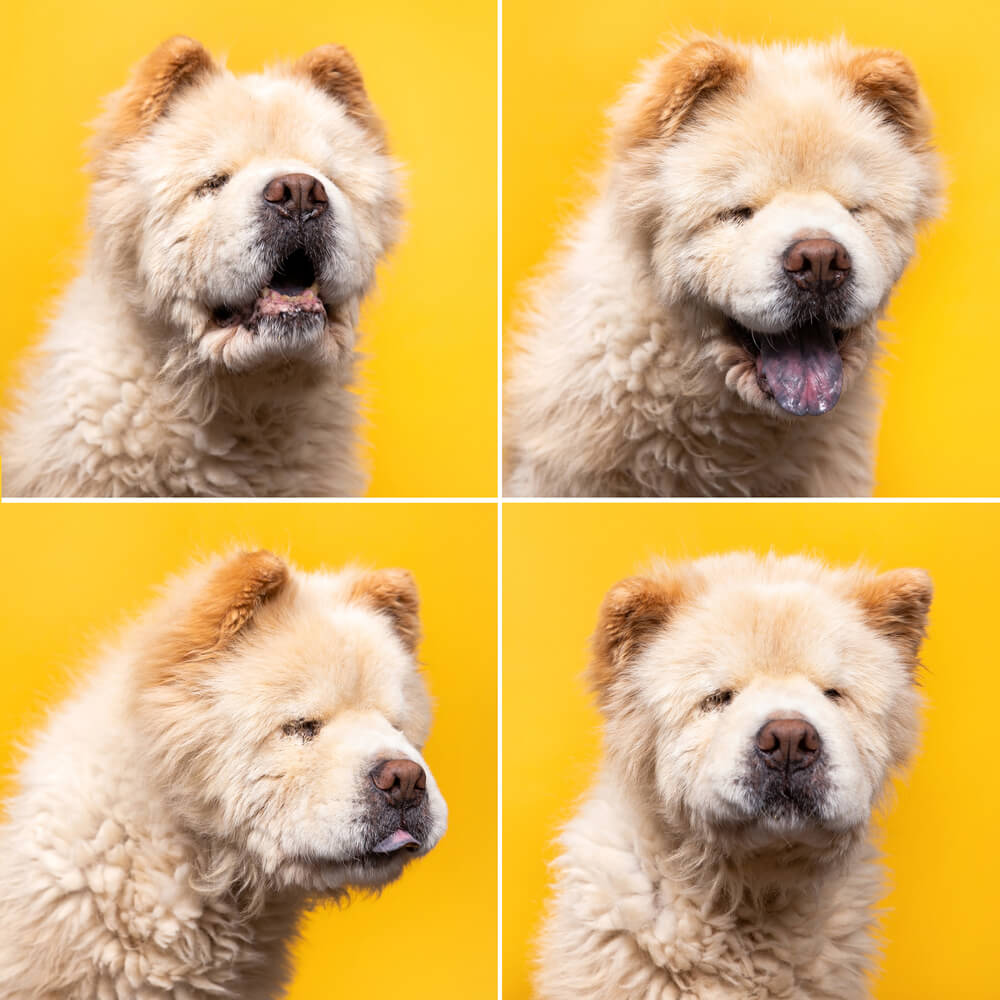
As your Chow Chow enters their senior years, it is crucial to provide them with the necessary care and attention they need to have a comfortable and healthy final stage of life.
Here are some key points you should consider in order to give your elderly Chow Chow the best care possible.
Firstly, ensure that your senior Chow Chow’s diet is tailored to their individual needs and maintains proper nutrition. This includes giving them plenty of fresh water and healthy snacks throughout the day. A balanced diet can help regulate their digestive system and maintain their weight.
Next, keep in mind that exercise remains important for your Chow Chow’s health, yet proper care must be taken to avoid overexertion. Light, low-impact activities should be incorporated into their routine to help improve mobility and mental stimulation.
Paying close attention to your Chow Chow’s changing physical needs is essential. This may include providing additional comfort for their sleeping area, such as using orthopedic beds to reduce pressure on their joints. It can also mean using ramps or steps to help them navigate stairs or enter/exit vehicles more easily.
Regular veterinary check-ups become increasingly important as your Chow Chow ages. This can allow for early detection and treatment of potential health issues, such as arthritis, dental problems, or other age-related conditions.
Lastly, remember that mental and emotional well-being is just as important for your Chow Chow during their senior years. Maintain a loving and nurturing environment for them.
This includes regular grooming, gentle massages, and calming interactions, ensuring that your beloved pet feels safe and comfortable during their end-of-life stage.
Frequently Asked Questions
What is the appropriate diet for a senior Chow Chow?
As your Chow Chow gets older, their nutritional needs may change. It’s important to consult with your veterinarian to determine the ideal diet for your senior dog. Generally, senior Chow Chows should be fed high-quality dog food that is formulated for older dogs.
This may include food with a lower calorie content to help with weight management and antioxidants for immune system support.
What are the best exercise routines for an older Chow Chow?
Older Chow Chows still need regular exercise, but the intensity and duration should be adjusted according to their capabilities. Stick to low-impact activities like short, gentle walks or swimming.
Monitor their energy level and adjust as needed, always keeping their comfort in mind.
How can I address behavioral issues in my senior Chow Chow?
Aging Chow Chows may develop cognitive decline or other behavioral issues. If you notice any changes in behavior, consult with a veterinarian to determine the cause and potential solutions.
Maintaining a consistent routine, providing mental stimulation, and offering positive reinforcement are key factors in managing behavioral problems in older dogs.
What health concerns should I watch for in an aging Chow Chow?
Senior Chow Chows are more prone to certain health issues such as hip dysplasia, elbow dysplasia, eyelid problems, allergies, and thyroid dysfunction. Regular vet check-ups can help identify these issues early, allowing for prompt treatment and management.
Also, keep an eye on your dog’s weight, appetite, energy levels, and any changes in their behavior or appearance.
How can I modify my home environment for a senior Chow Chow’s comfort?
To ensure that your senior Chow Chow is comfortable at home, make some adjustments that cater to their aging bodies. Provide a warm and comfortable sleeping area with orthopedic beds or memory foam for joint support.
To navigate stairs or slippery floors more easily, you can add ramps or non-slip mats. Keep their food and water bowls easily accessible and at a comfortable height.
What is the recommended grooming regimen for an older Chow Chow?
Grooming your senior Chow Chow is essential for their overall health and well-being. Regular brushing and bathing can help prevent matting and tangling of their fur, which can cause discomfort.
Senior dogs, who may be less active, are also more prone to dental issues, making teeth brushing and dental chews more important as they age. Check and clean their ears regularly and trim their nails to avoid discomfort or mobility issues.
